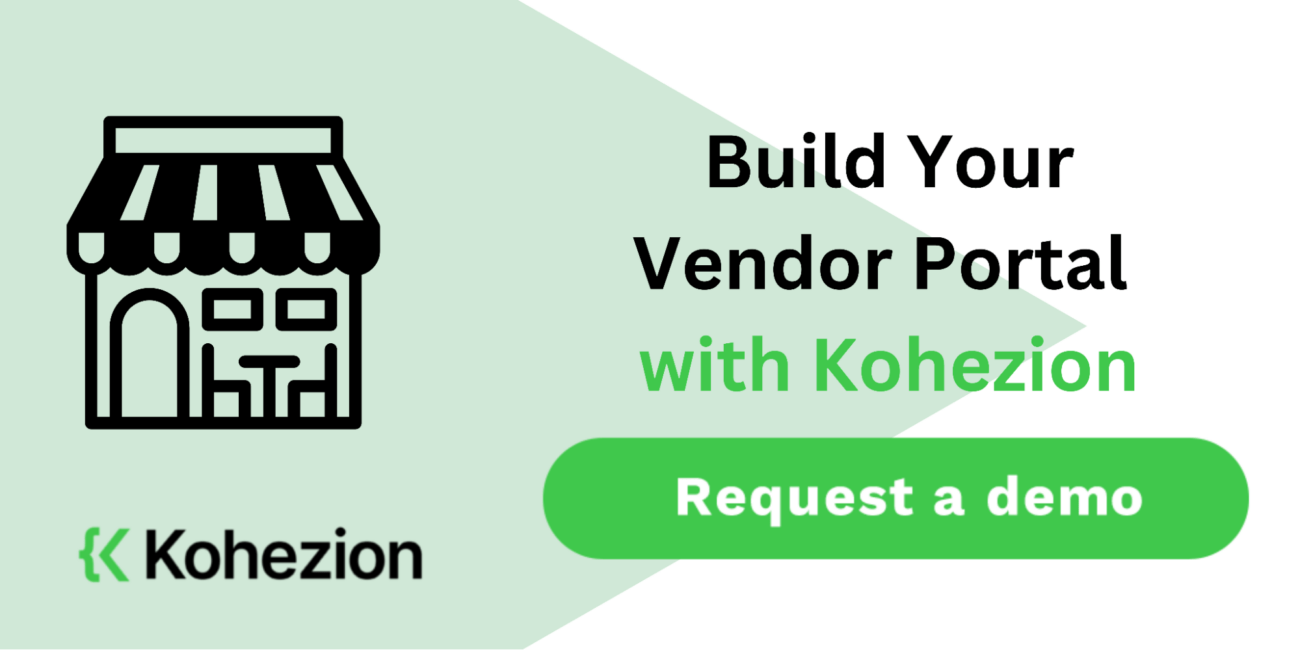Vendor portals are becoming essential tools for businesses managing their supply chains. Research shows that companies using vendor management systems report a 15-25% improvement in procurement efficiency. These portals streamline communication, automate workflows, and provide real-time data, helping businesses easily manage supplier relationships.
In this post, we’ll explore the top 10 vendor portals to help you find the best solution for your business.
What Are Vendor Portals?
Vendor portals are online platforms that allow businesses and their suppliers to collaborate more effectively. These portals provide a central place where vendors can submit invoices, track orders, update compliance documents, and communicate with businesses. They simplify many manual processes like purchase order management and payment tracking, making it easier for both sides to stay organized.
Why Are Vendor Portals Important?
Vendor portals are important because they help businesses save time and reduce errors in managing supplier relationships. Companies can automate tasks like order processing, invoicing, and compliance tracking to make operations more efficient. They also provide real-time visibility into transactions, allowing businesses to make better decisions and improve supplier performance. Without a vendor portal, managing multiple suppliers manually can lead to mistakes, delays, and communication gaps.
Benefits of Vendor Portals
Here are some key benefits of using a vendor portal:
Streamlined Communication
Vendor portals centralize communication in one place, which reduces the chances of miscommunication. Instead of relying on scattered emails or calls, vendors, and businesses can track conversations and updates directly in the portal. This makes it easier to follow up on important matters and resolve issues more quickly.
Improved Collaboration
Having all the necessary documents, updates, and tasks in one location allows vendors and businesses to collaborate more efficiently. Vendor portals provide tools for document sharing, approvals, and task management. This helps everyone stay on the same page and prevents misunderstandings or delays in the workflow.
Real-Time Data Access
With vendor portals, vendors can access current information like orders, shipments, and payments whenever they need it. This eliminates the need for constant back-and-forth inquiries. Real-time access ensures that vendors can respond to any changes quickly, leading to fewer mistakes and better decision-making.
Improved Vendor Compliance
Vendor portals often come with built-in features to manage and monitor compliance. They allow businesses to upload necessary documents, set compliance reminders, and track if vendors meet specific requirements. This ensures that all necessary standards, like safety regulations or legal contracts, are easily maintained.
Faster Payment Processing
Vendor portals automate the invoicing and payment process, speeding up transactions. Vendors can submit invoices directly through the portal, and businesses can approve and process payments faster. This leads to better cash flow for vendors and reduces payment delays.
Greater Transparency
Vendor portals allow both parties full visibility into the status of orders, payments, and performance metrics. This helps prevent misunderstandings and builds trust, as vendors can see the progress of their transactions at any time.
Reduced Administrative Work
Manual data entry and paper-based systems can lead to inefficiencies and errors. Vendor portals automate tasks such as order tracking, document submission, and report generation, eliminating the need for a lot of manual administrative work. This saves time and reduces the chances of human error.
Better Performance Tracking
Vendor portals often include tools for monitoring and analyzing vendor performance. This allows businesses to easily track key metrics such as delivery times, quality of products, and reliability. With this data, businesses can make more informed decisions about which vendors to continue working with or where improvements are needed.
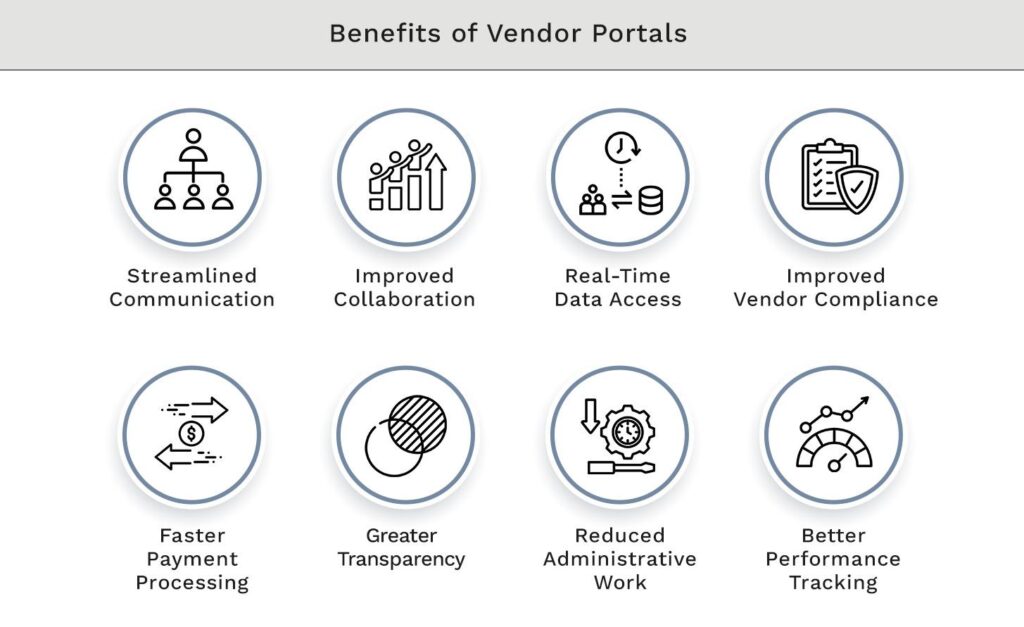
Top 10 Vendor Portals
Here is a list of the top 10 vendor portals to help your business streamline procurement and vendor management.
1. Kohezion
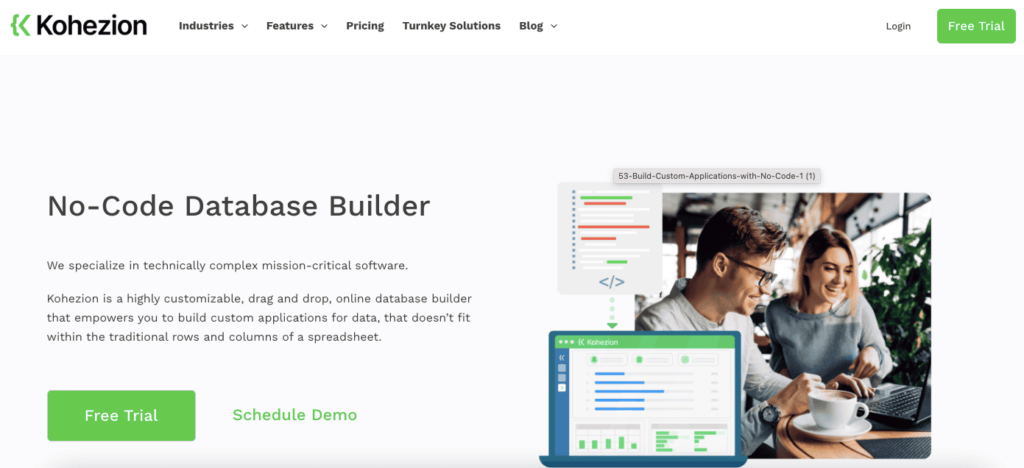
Kohezion is a flexible and user-friendly vendor management platform designed to help businesses streamline their procurement processes and improve supplier collaboration. This cloud-based solution allows users to create custom applications tailored to their specific needs, making it suitable for businesses of all sizes. Kohezion's intuitive interface and powerful features make it easy for teams to manage vendor relationships efficiently.
Top 5 Features:
- Customizable vendor management applications
- Centralized document storage and sharing
- Real-time reporting and analytics
- Automated workflows for procurement processes
- Integration with other software systems
5 Benefits:
- Allows for tailored solutions to fit specific business needs
- Centralizes vendor documents for improved collaboration
- Provides insights with real-time reporting
- Streamlines workflows to reduce manual effort
- Offers easy integration with existing business tools
2 Cons:
- Limited advanced features compared to larger platforms
- May require some initial setup and customization time
Best For:
Businesses seeking a customizable and user-friendly vendor management solution that can adapt to their unique procurement processes.
2. SAP Ariba
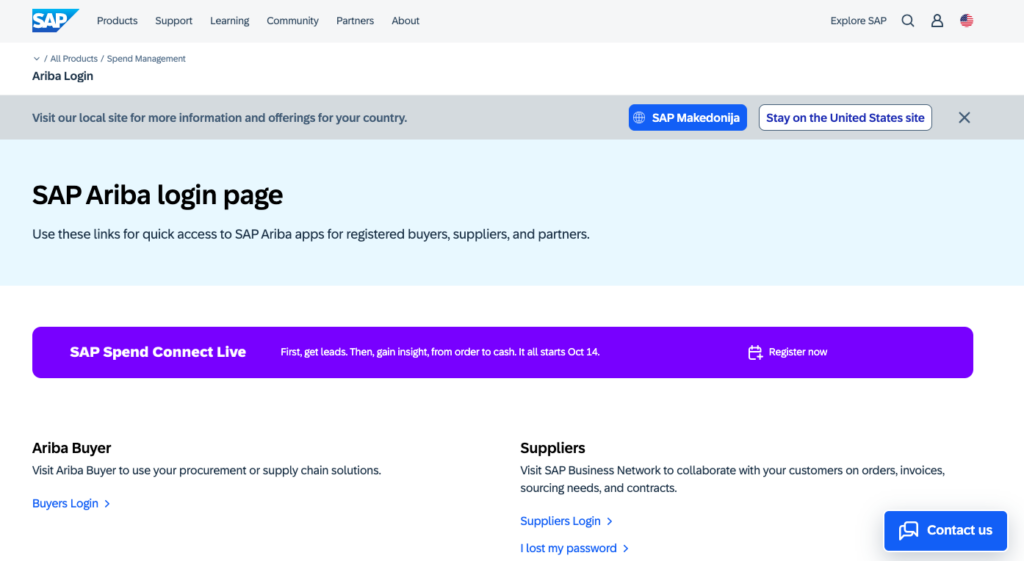
SAP Ariba is a comprehensive procurement and supply chain management platform that connects businesses with suppliers worldwide. It offers tools for procurement, supplier management, and sourcing via a cloud-based interface and is known for its robust capabilities in managing large and complex supplier ecosystems.
Top 5 Features:
- Supplier onboarding and management tools
- Procurement and sourcing automation
- Advanced analytics and reporting
- Contract management
- Integration with SAP ERP systems
5 Benefits:
- Streamlines supplier relationships
- Improves procurement efficiency
- Reduces manual errors with automation
- Improves visibility into the supply chain
- Centralizes all supplier documents and contracts
2 Cons:
- High implementation costs
- Steep learning curve for new users
Best For:
Large enterprises that need deep integration with SAP systems and advanced procurement tools.
3. Coupa
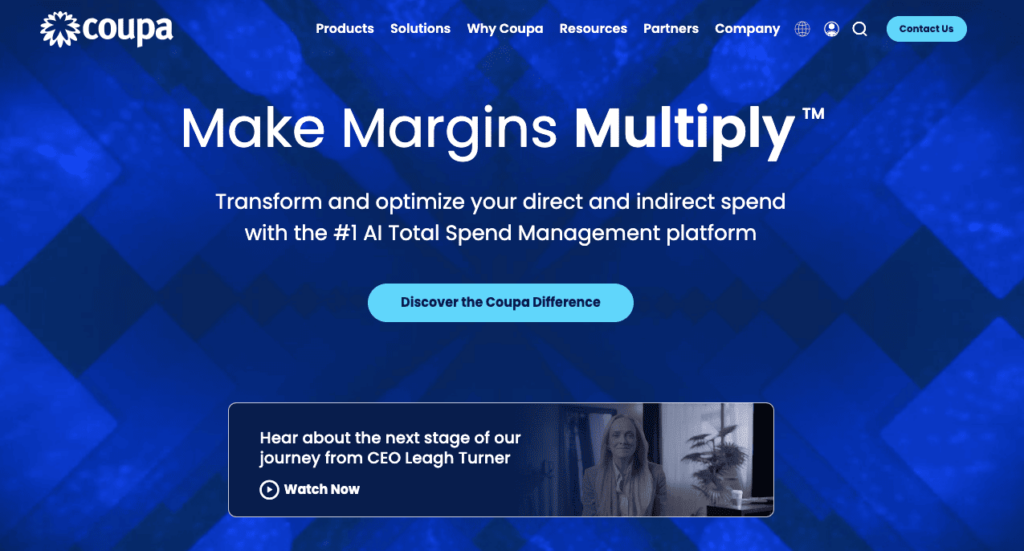
Coupa is a cloud-based platform that focuses on procurement, invoicing, and expense management. It offers real-time visibility into financial and procurement processes, helping businesses make informed decisions faster. Coupa integrates easily with other enterprise systems, making it a flexible solution for many organizations.
Top 5 Features:
- Expense and procurement management
- Real-time data access and analytics
- Supplier collaboration tools
- Budget tracking and approvals
- Integration with ERP and accounting software
5 Benefits:
- Improves procurement control and visibility
- Automates expense tracking and reporting
- Improves supplier collaboration
- Simplifies budget approvals
- Reduces procurement cycle times
2 Cons:
- Expensive for small businesses
- Limited customization options for larger organizations
Best For:
Mid-to-large-sized businesses looking for a user-friendly platform with robust procurement and expense management tools.
4. Oracle Procurement Cloud
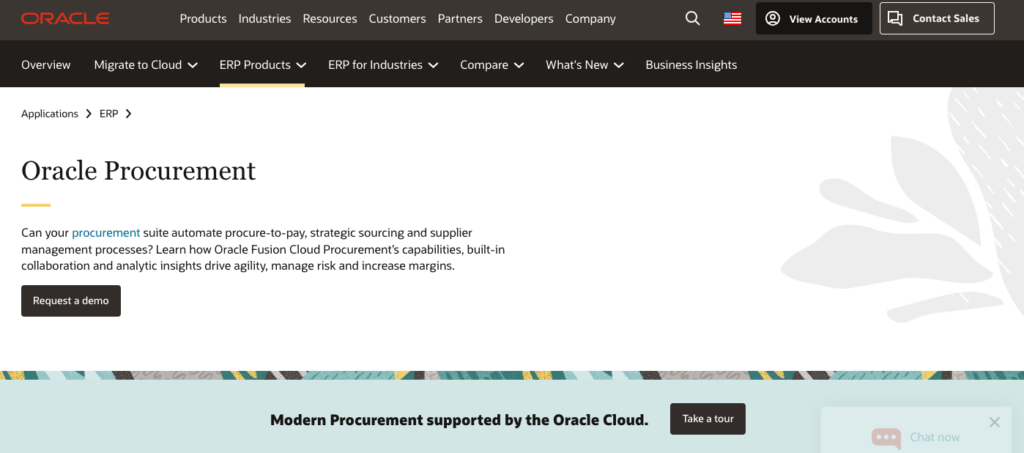
Oracle Procurement Cloud is a powerful procurement and supplier management platform that helps businesses streamline purchasing processes. It offers a range of tools for contract management, supplier collaboration, and compliance tracking. Oracle's platform integrates well with other Oracle solutions, making it ideal for companies already using Oracle products.
Top 5 Features:
- Supplier collaboration and compliance tools
- Contract management automation
- Real-time procurement insights
- Approval workflows
- Integration with Oracle ERP systems
5 Benefits:
- Reduces procurement costs
- Automates contract and supplier management
- Improves compliance tracking
- Improves supplier relationships
- Provides powerful analytics for decision-making
2 Cons:
- High cost for smaller businesses
- Limited support for non-Oracle systems
Best For:
Organizations already using Oracle products and seeking to streamline their procurement processes.
5. GEP SMART
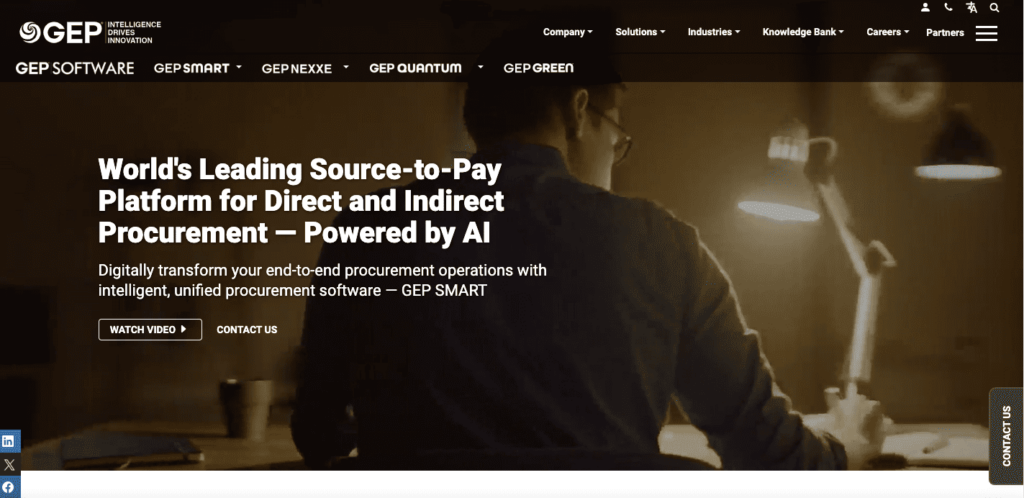
GEP SMART is a cloud-based procurement and supply chain platform designed to help businesses manage sourcing, procurement, and supplier relationships. Its comprehensive features include tools for contract management, order tracking, and vendor performance analysis. The platform is highly scalable and is suited for large enterprises.
Top 5 Features:
- Supplier performance tracking
- Sourcing and procurement management
- Contract lifecycle management
- Spend analysis and reporting
- Real-time order tracking
5 Benefits:
- Improves supplier performance visibility
- Reduces procurement costs
- Centralizes contract and vendor data
- Streamlines sourcing workflows
- Provides detailed spending analytics
2 Cons:
- Complex setup for smaller businesses
- Requires significant user training
Best For:
Large enterprises looking for a scalable procurement solution with strong supplier performance tracking capabilities.
6. Jaggaer
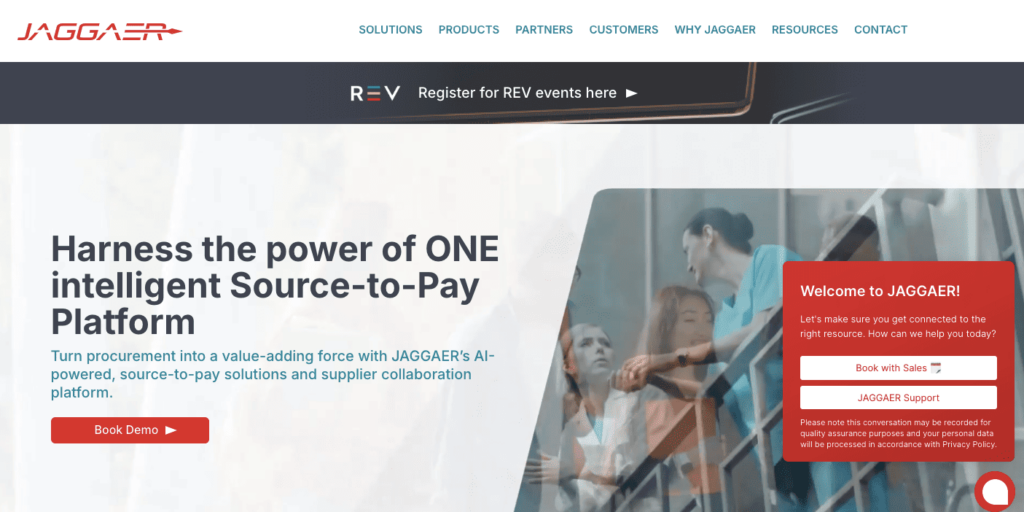
Jaggaer is a vendor management platform tailored for global supply chains. It includes tools for supplier onboarding, contract management, and risk management. Jaggaer excels in industries with complex supplier networks, providing real-time communication tools for vendors and businesses to collaborate effectively.
Top 5 Features:
- Supplier risk management tools
- Contract and compliance tracking
- Supplier collaboration platform
- Spend analysis
- Global supplier onboarding capabilities
5 Benefits:
- Mitigates supplier risks
- Improves global vendor management
- Centralizes contract and compliance data
- Provides comprehensive spending analysis
- Improves collaboration with suppliers
2 Cons:
- Expensive for small businesses
- Can be overly complex for basic procurement needs
Best For:
Businesses with global supply chains requiring advanced supplier risk management and compliance tracking.
7. Precoro
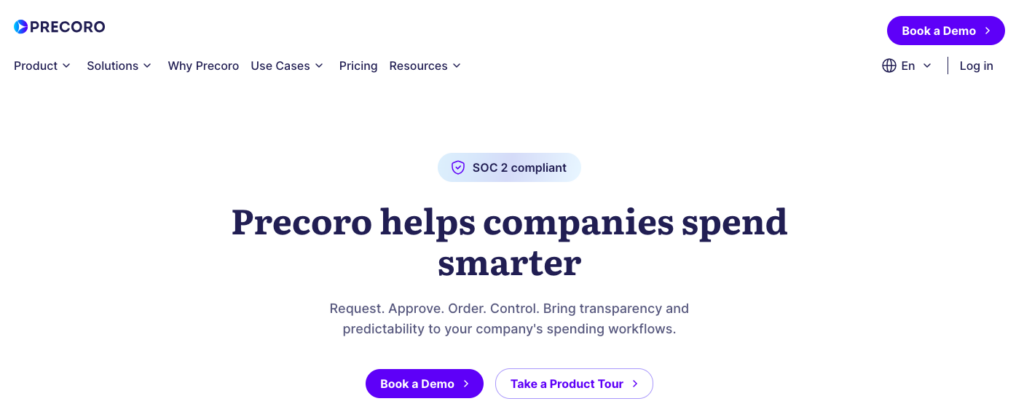
Precoro is an intuitive procurement software designed for small to medium-sized businesses. It offers features for managing purchase orders, approvals, and vendor communication. Precoro is known for its ease of use and affordability, making it a good choice for companies looking to simplify procurement processes.
Top 5 Features:
- Purchase order automation
- Vendor management and communication tools
- Approval workflows
- Budget tracking and reporting
- Invoicing and payment processing
5 Benefits:
- Streamlines purchase order creation and tracking
- Reduces manual errors with automation
- Improves budget control
- Easy-to-use interface for non-technical users
- Affordable for small businesses
2 Cons:
- Limited features for large enterprises
- Basic reporting capabilities
Best For:
Small to medium-sized businesses looking for an affordable, easy-to-use procurement solution.
8. Ivalua
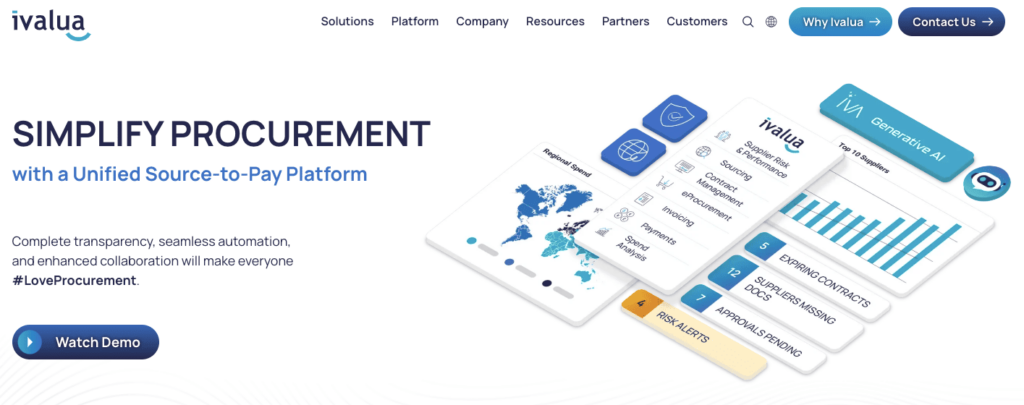
Ivalua is a procurement and vendor management platform focused on supplier collaboration, sourcing, and compliance. It provides a range of tools to manage supplier relationships, contracts, and procurement processes. Ivalua's platform is known for its flexibility, making it adaptable to various industries and business sizes.
Top 5 Features:
- Supplier collaboration and sourcing tools
- Contract management and compliance tracking
- Spend analysis and reporting
- Procurement automation
- Supplier performance monitoring
5 Benefits:
- Improves supplier collaboration and communication
- Centralizes contract and compliance management
- Provides actionable spending insights
- Improves procurement efficiency
- Customizable to fit various business needs
2 Cons:
- High implementation costs
- Complex interface for first-time users
Best For:
Businesses of all sizes looking for a flexible procurement and supplier management platform that can be tailored to specific needs.
9. Procurify
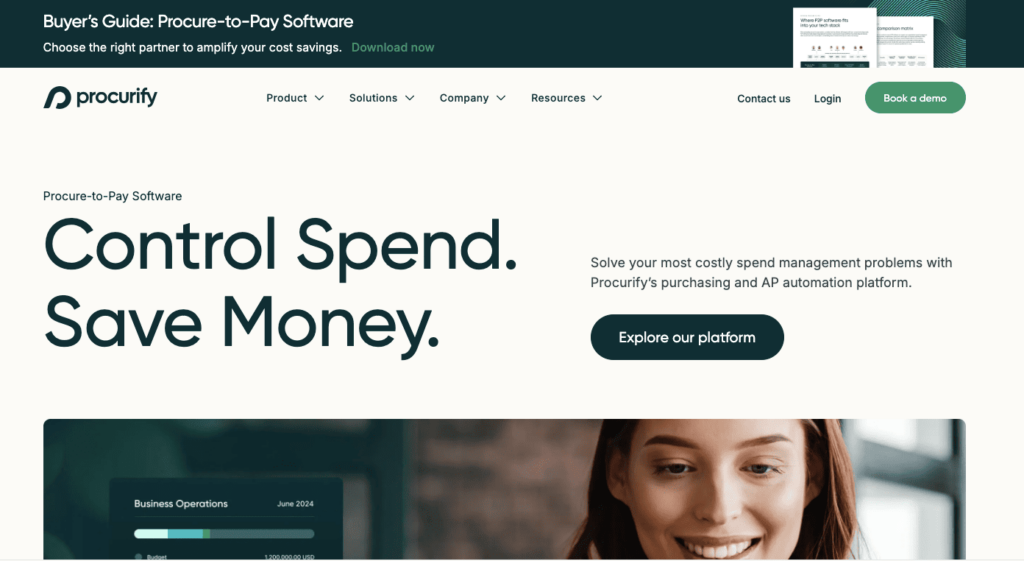
Procurify is a procurement platform that simplifies purchasing and vendor management. It offers features for managing purchase orders, invoices, and approvals and integrates with popular accounting systems. Procurify is especially useful for companies that need to track spending across departments.
Top 5 Features:
- Purchase order creation and tracking
- Invoice and payment management
- Approval workflows
- Integration with accounting systems
- Real-time spending visibility
5 Benefits:
- Simplifies purchase order management
- Streamlines invoice approvals and payments
- Provides real-time insights into spending
- Easy integration with financial software
- Reduces manual paperwork
2 Cons:
- Limited advanced procurement features
- Basic reporting tools
Best For:
Small to medium-sized businesses looking for a straightforward solution to manage purchasing and track expenses.
10. Zycus
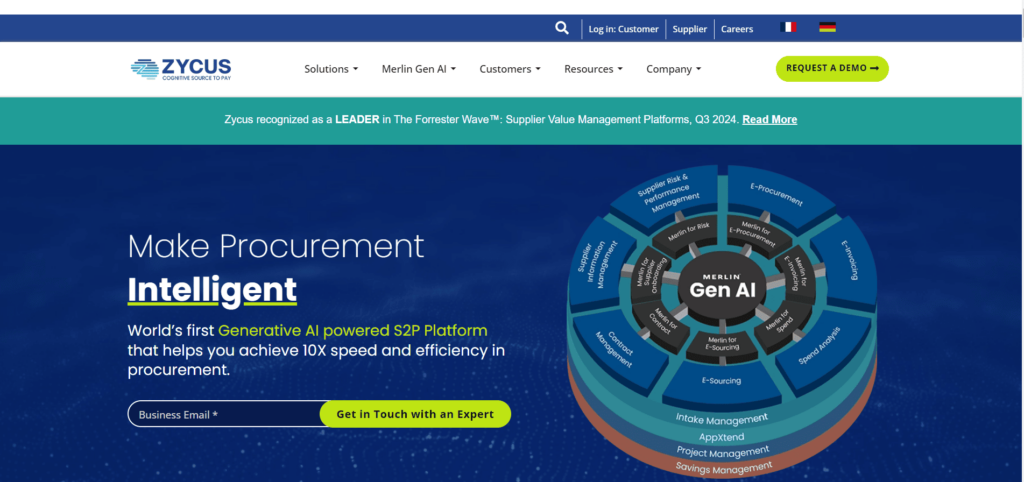
Zycus is a comprehensive procurement platform offering a range of features for vendor management, procurement, and invoicing. It includes tools for contract management, supplier collaboration, and performance monitoring. Zycus is designed to automate procurement processes and improve supplier relationships.
Top 5 Features:
- Contract management and compliance tracking
- Supplier collaboration tools
- Procurement automation
- Spend analysis and reporting
- Supplier performance tracking
5 Benefits:
- Automates procurement tasks
- Improves supplier communication
- Centralizes contract and compliance data
- Improves spend visibility
- Provides performance tracking for vendors
2 Cons:
- Expensive for small businesses
- Steep learning curve for new users
Best For:
Mid-to-large-sized businesses looking for a full-featured procurement platform with automation and supplier performance monitoring capabilities.
Top Features in Vendor Portals
Below are the top five features commonly found in vendor portals and how they can benefit businesses.
1. Vendor Onboarding
Vendor portals automate the collection of required documents and information, simplifying the process of onboarding new suppliers. Vendors can upload certifications, contracts, and other necessary files directly through the portal, speeding up the onboarding process and ensuring that all vendors meet the company's standards from the start.
2. Order and Invoice Management
One of the most important features of a vendor portal is order and invoice management. Vendors can submit and track their invoices, while businesses can approve and process payments through the system. This reduces paperwork and helps ensure payments are made on time, improving cash flow for both parties.
3. Compliance Tracking
Vendor portals often have tools to monitor and enforce compliance with industry regulations or company-specific policies. Vendors are prompted to submit the necessary compliance documents, and the system automatically flags any missing or expired files. This feature helps businesses avoid risks and ensure all suppliers follow the required standards.
4. Real-Time Communication
Vendor portals enable real-time communication between businesses and suppliers. Instead of relying on emails or phone calls, vendors can get updates, ask questions, and resolve issues directly through the portal. This reduces delays and ensures that both sides are always on the same page.
5. Vendor Performance Tracking
Tracking vendor performance is critical for maintaining high-quality supplier relationships. Vendor portals provide tools to monitor key performance indicators (KPIs) such as delivery times, product quality, and reliability. Businesses can use this data to make informed decisions about their vendors and take action when performance issues arise.
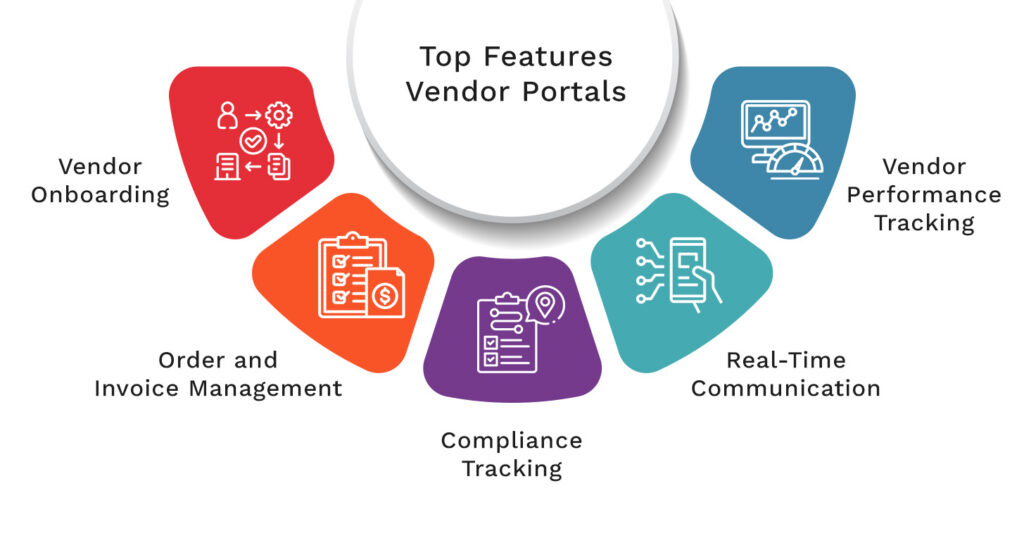
Try Kohezion for Your Vendor Management Needs
If you're looking for a flexible and easy-to-use solution for managing your vendors, Kohezion could be the right choice. With Kohezion, you can customize your vendor portal to fit your unique business needs, streamline workflows, and improve communication with suppliers. Give Kohezion a try and see how it can help your business manage vendors more efficiently.
Conclusion
Having the right vendor portal can significantly improve supplier relationships and procurement processes. The top 10 vendor portals we discussed offer various features and benefits that can help businesses of all sizes streamline operations, improve communication, and reduce costs. Choosing the right solution will depend on your unique needs, but with the right tools, you can create a more efficient and effective supply chain.
If you’re interested in learning more about how Kohezion can help your business manage vendors better, feel free to contact us today!
Start building with a free account
Frequently Asked Questions
Training your team to use a vendor portal can involve hands-on sessions, online tutorials, and user manuals. Many vendor portal providers offer training resources and support to help your team get acquainted with the system. Creating a few practice scenarios can also help team members gain confidence and understand how to navigate the portal efficiently.
Most vendor portal providers offer different support options, including email, live chat, and phone assistance. Some platforms also have dedicated customer support teams to help with technical issues or answer questions. It's a good idea to check the level of support each vendor offers before deciding, ensuring you have the help you need when issues arise.
While many vendor portals have transparent pricing, some may include hidden costs such as implementation fees, training charges, or additional costs for premium features. Be sure to review the pricing structure carefully and ask the vendor about any potential extra fees. Understanding the full cost of ownership will help you budget appropriately.
